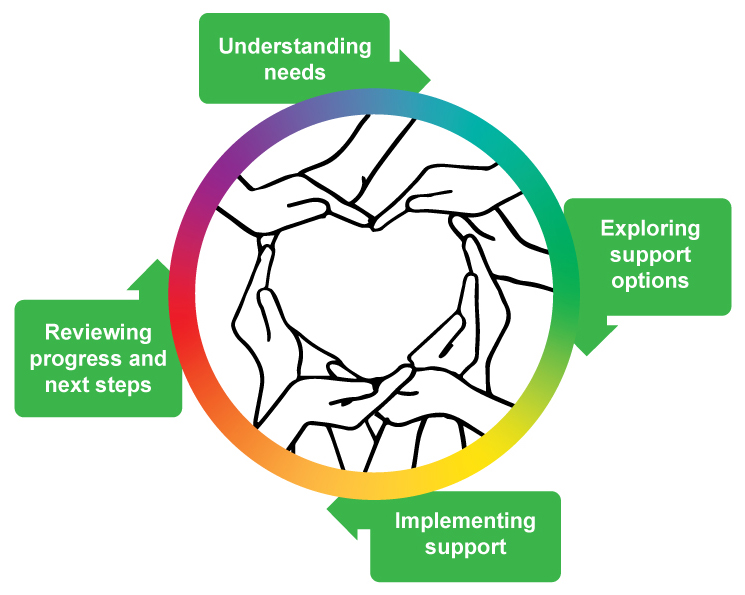Neurodiversity - supporting needs
Support is available for families of children and young people who may be neurodivergent.
We believe that every child and young person’s needs are unique, and the support provided to them should be tailored to their individual needs.
Not all children or young people need a diagnosis as their needs may be met through personalised support. Our approach prioritises understanding and addressing needs first, rather than focusing on the immediate pursuit of a formal assessment and diagnostic label. You can access resources, strategies and advice for each area of your child or young person’s needs in the following local and national resources that have been designed to support development and wellbeing at every stage.
Our goal is to empower families with the tools and information needed to make informed decisions and ensure every child and young person receives the support that is right for them. However, if you need further support, please speak to your child or young person’s school or healthcare professional.

We recommend the following support organisations locally and nationally:
Contact - UK Charity that supports families caring for children with additional needs
National Autistic Society – UK Charity supporting autistic people and their families
Cheshire East Live Well – Local information about the support and provision for children and young people with Special Educational Needs and/or disabilities (SEND)
Cheshire East Parent Carer Forum – A volunteer-led representative group for parents/carers of children and young people (aged 0-25 years) with Special Educational Needs and/or Disabilities (SEND). Cheshire East PCF is also a member of the National Network of Parent Carer Forums)
Further support
Further support can also be found using the links below:
- Considerations before diagnostic assessment
- Current referral processes
- Jargon buster
- Right to choose - referral for autism assessment
- Right to choose - referral for ADHD assessment
- Personal passports and working alongside practitioners
- Social stories
To provide feedback on this page, please click here.
The views and opinions expressed in any external resources, websites, or references suggested within this material do not necessarily reflect the views, policies, or position of the National Health Service (NHS). These resources are provided for informational purposes only, and their inclusion does not imply endorsement or approval by the NHS. While every effort is made to recommend high-quality and reliable resources, the NHS is not responsible for the content or advice provided by external organisations. It remains the responsibility of parents, carers, and practitioners to assess the relevance and appropriateness of the information for their individual circumstances.